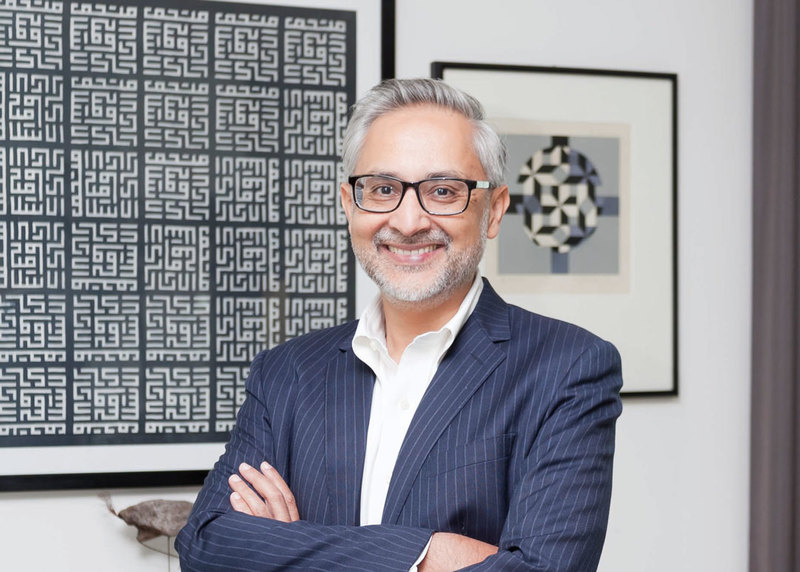NOW! Jakarta spoke to the British Ambassador to Indonesia, Moazzam Malik, about the two country’s close relationship and hopes for the new government.

As you come to the end of your tenure, can you remember the expectations you had when you first started? How do they compare to the reality that unfolded?
On a personal level, I have spent most of my civil service career in difficult places, with lots of conflict and humanitarian issues, so I wanted to come to Indonesia as I felt it would be personally and professionally refreshing. That has proven true!
At my first press conference, I was asked about my hopes for Indonesia—I replied that I hoped Indonesia would become less shy and more engaged internationally. In our interconnected world, we all depend on relationships to solve problems and score successes; Indonesia needs us and, in turn, the world needs a country as big as Indonesia.
Today, we have indeed seen Indonesia become less shy and more active, although there is still room to grow.
The embassy was mid-sized when I arrived. We have grown 50% and are a large embassy, with 11 or 12 government departments represented, plus the British Council. That shows we have many partners here that are worth investing in and are keen to collaborate with us.
What are the events that you will remember most? Do you have a top three?
I was the first ambassador to visit Kampung Inggeris in East Java, where there are 200 plus language schools and with 45 – 50,000 Indonesians moving in every year to learn English. It was great meeting young people eager to learn English. Some did it to get a job, some to apply for universities, some wanting to visit the UK, and they were all super motivated.
The other two was at the same event. My first day coincided with President Joko Widodo’s inauguration. I went to Hotel Indonesia roundabout and joined thousands of people waiting to greet their new President. I talked to the people and felt the massive excitement—an expression of their hopes and aspirations. It was an incredible way to start my assignment.
That same night I went to Monas for a thanksgiving party and a British band, Arkana, was playing. I went backstage and hung out Arkana and Slank. I was able to look out at the crowd—200,000 people—all looking at the stage. It was extraordinary.
From a purely diplomatic G-to-G perspective what do you think you have achieved over the last few years?
We established that UK and Indonesia have a lot to gain from being partners. We strongly complement each other despite being 10,000 miles apart. The UK is the third most attractive country for Indonesians. We believe there is a high awareness of what we can do for Indonesians through our new teams and our strong 50% growth. Likewise, there is a growing awareness of Indonesia in the UK.
We had a visit from Prime Minister Cameron, and President Jokowi visited the UK as well. We have signed MOU’s on a range of issues: cyber technology, space, sports, education, creative industries, and many others.
Foreign Minister Retno is reviewing our diplomatic relationship together with Jeremy Hunt, recognizing we have a lot to gain from each other, without always having to agree. Our great countries are committed to peace, prosperity, and the rule of law.
Are there any areas that you feel more progress could have been made?
The embassy team would cry if I asked them to go any faster. Progress isn’t always visible, so we just need to be patient, but yes there is so much more we can do: we need to get awareness up to a proportionate level with India and China; and we need more young people and more politicians to be aware of Indonesia.
In terms of personal contact with ministers, governors, mayors or other heads of institutions, who would you single out as having been really good to work with?
There are lots of people who are excellent to work with, starting with President Jokowi, whom I met on his visit to London, and the people around him. Then there is the Finance Minister, Ibu Sri Mulyani, who keeps winning awards. She is a world-class leader.
Moving to a regional level, we had a deep partnership with Governor Ahok, and now work closely with Pak Anies, also with Pak Ridwan Kamil in Bandung, and Ibu Risma in Surabaya who is also a strong partner. We really have friends all over—including in the KPK, with civil society leaders, and also with major religious leaders like Ahmad Syafii Maarif.
Will Brexit affect the relationship between the UK and Indonesia, and how?
No. Whatever happens, the UK has a deep commitment to Indonesia. We already trade on WTO terms, so Brexit doesn’t change anything. The UK and Indonesia also signed an agreement that mirrors the EU agreement on legal timber, so can ensure continuity. As we exit, we will double down and deepen our partnerships with Indonesia. There is no downside—only upside.
"The country’s success depends on human resources, which depends on education. There are no Indonesian Universities in the top 200 world ranking which is not acceptable for a G20 country."
What are your wishes, desires or hopes for the incoming Indonesian Government?
I was here in 2014, learning Indonesian in Jogja at the time of President Jokowi’s first term, and I have seen the progress made over five years. Democracy is noisy and Indonesia is no exception, the democratic institutions are well established and equipped, but of course, there are always lessons to learn
I have five hopes for the upcoming government over the next five years:
- In the next five years, push democratic values and protect minority values. A real democracy is judged by the real rights of its minorities.
Push further for an economic reform. Being open is very important and good for Indonesia, it will ensure a flow of talent, technology and capital will keep coming here to make sure Indonesia companies become competitive globally.
The country’s success depends on human resources, which depends on education. There are no Indonesian Universities in the top 200 world ranking which is not acceptable for a G20 country.
Climate change is an issue. Indonesia is the 16th largest economy but the 5th largest emitter of greenhouse gases in the world. If Indonesia fails to improve, the world will fail. Protecting the environment must be a priority.
Indonesia must be internationally active. As a G20 country in an unstable and unpredictable world, Indonesia need to help shape and keep international rules.
What are your next moves and plans for the future?
Home. Back to London. We’ve been away for four years and eight months and I am the longest serving ambassador to Indonesia. It has been an honour and privilege to serve The Queen and the British Government and the people, but now it’s time to go home.
There are many big policy – and physical- challenges there and I look forward to being a part of that. I won’t necessarily be a part of the foreign office.







